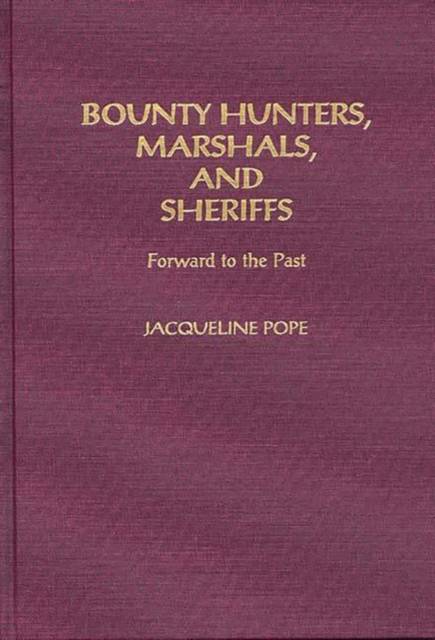
- Afhalen na 1 uur in een winkel met voorraad
- Gratis thuislevering in België vanaf € 30
- Ruim aanbod met 7 miljoen producten
- Afhalen na 1 uur in een winkel met voorraad
- Gratis thuislevering in België vanaf € 30
- Ruim aanbod met 7 miljoen producten
Omschrijving
Sheriffs, marshals, and bounty hunters are remembered as relics of our Wild West past. Pope looks at these agents of the law who operate outside police departments, particularly their roles in urban areas. She examines reasons for becoming a sheriff, marshal (usually appointed and not elected), or bounty hunter, as well as employment requirements, responsibilities, and relationships with local police and city officials. Pope argues ultimately that these law enforcers, to a much greater degree than the police, threaten low-income people. Urban sheriffs do not make arrests, but rather serve summonses, track down scofflaws, and confiscate property. Marshals carry out evictions. Bounty hunters are usually armed and work often in urban areas, hunting down wanted persons for a variety of crimes. Although they are not policemen, they are authorized to capture people and can do so without the restrictions imposed on traditional law enforcement officers.
Pope focuses her attention on sheriffs, marshals, and bounty hunters in Arizona, New Jersey, New Mexico and New York. She examines their activities in the nineteenth century and today, providing interviews with sheriffs, marshals, bounty hunters, policemen, and with people who have been pursued by them. A work of interest to students, researchers, and citizens concerned with the workings of the U.S. criminal justice system.Specificaties
Betrokkenen
- Auteur(s):
- Uitgeverij:
Inhoud
- Aantal bladzijden:
- 168
- Taal:
- Engels
- Reeks:
Eigenschappen
- Productcode (EAN):
- 9780275946296
- Verschijningsdatum:
- 24/11/1998
- Uitvoering:
- Hardcover
- Formaat:
- Genaaid
- Afmetingen:
- 162 mm x 243 mm
- Gewicht:
- 444 g

Alleen bij Standaard Boekhandel
Beoordelingen
We publiceren alleen reviews die voldoen aan de voorwaarden voor reviews. Bekijk onze voorwaarden voor reviews.











